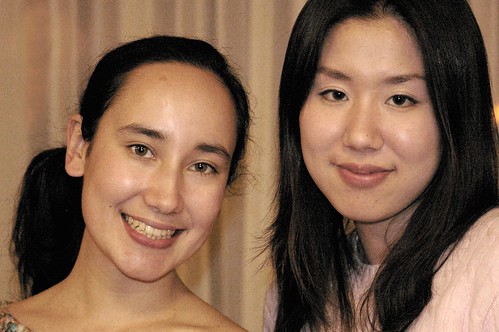 |
| Photo Credit: Matt Cline |
From The Chronicle of Higher Education:
"The foreign students on American college campuses today are not those of generations past.You can read the complete article here.
They are younger, as undergraduate numbers surge. They are from more countries than ever and yet likelier to be from a single country, China. Many have the means to pay for an American college degree—more than 60 percent say their family foots the tuition bill—but a growing share are studying on scholarships sponsored by foreign governments. They are the product of a burgeoning middle class in places like Shanghai and Seoul, Delhi and Taipei, as studying abroad becomes less the exclusive privilege of well-traveled, well-heeled elites.
This changing profile presents challenges both academic and cultural to colleges across the United States. International-student offices are dealing with issues as varied as plagiarism, poor language skills, country-specific cliques, and cultural taboos against counseling. They are being called on to provide sex education to sheltered undergrads, to respond to religious conservatives unsettled by opposite-gender instructors, and to contend with helicopter parents a dozen time zones away.
"It's a culture shock not just for the students," says Ivor Emmanuel, director of the international office at the University of California at Berkeley, "but for the campus."
As a consequence, many colleges are taking a closer look at their foreign-student services, re-imagining and recasting them to be more responsive to this new breed of student's academic, social, and emotional needs. Colleges are rethinking orientation for international students, sometimes stretching it into a semester-long introductory course in American college culture. They are making use of social media, so students can begin their adjustment before they even leave their home countries, and enlisting upperclassmen from overseas and study-abroad veterans to serve as peer mentors. They are hiring counselors with specific cultural or linguistic expertise. And they are reaching out to faculty members, to better prepare them to work with pupils whose previous classroom experience is fundamentally foreign."
(h/t to Trae Vacek for the article link)
No comments:
Post a Comment